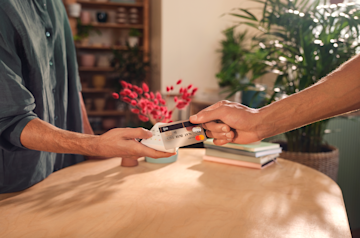
Europeans’ financial confidence rebounds as restrictions ease
We asked people across Europe how their shopping and saving habits are changing with the easing of lockdown. Find out what they said.
3 min read
Over the past 18 months, Europeans have endured a turbulent ride in many ways - not least from a financial perspective. As shops and entertainment venues shut, many consumers pressed pause on their spending, and decided to wait for more certain times. Now, as restrictions continue to ease, we wanted to gauge the state of financial confidence across the region. To this end, we surveyed over 6,000 Europeans to unpick how the COVID-19 pandemic has affected attitudes to saving and spending - and understand whether consumers are, once again, ready to spend - and how. Global consultancy McKinsey has dubbed 2021 the year of ‘revenge shopping’ - and our research shows the seeds of this. While consumers do not intend to make big, aspirational purchases, a significant proportion are planning to invest in new clothing (41%), staycations (30%) and technologies, such as televisions and game consoles (22%). There’s a clear sense that after a year of wearing and watching the same old things, the number one priority for many consumers is breaking the monotony. This is particularly true for younger generations. Just 7% of 25-34 year olds say they do not intend to make any purchases in the next three months, compared to almost a third (31%) of over 65s. After months of social restrictions, Europeans are also feeling more optimistic about socialising. Half (48%) feel confident they'll be able to go on a staycation, meet large groups of friends or family (47%) and go to a restaurant or bar (47%). Among those feeling less confident, the pace of the vaccine rollout and different strands of the COVID-19 virus are the dominant concerns. Some consumers also want to hold back in the near-term to help ensure a swifter recovery.While the majority of our research findings relate to the next three to six months, there are indications that the pandemic will have a longer-term impact on consumers’ attitudes to spending and saving. A third (33%) of those in France, Spain and Italy say they’re now more careful about what they spend money on. There’s also evidence that it has made consumers think more carefully about where they spend their money. Three in five German, Dutch and Irish respondents say the pandemic has made them more conscious of spending money with local businesses and merchants (59%). We expect this sentiment to boost local economies and aid a more even recovery.Over the coming months, the landscape will change and consumers’ attitudes to spending and saving will evolve. However, our research gives many reasons for optimism. As Europe cautiously opens-up, consumers are feeling more secure in their financial circumstances. It seems increasingly likely that we’re approaching a day when we can, once again, spend with confidence. *N26 and survey partner, Sapio Research, surveyed 6,075 consumers across France, Germany, Spain, Italy, Ireland and the Netherlands in April 2021.
Europeans spend on clothes, staycations and tech
Socialising comes back on the menu
Looking to the future
BY N26Love your bank
Related Post
These might also interest youLIFESTYLECould AI help you manage your money?86% of people are open to using AI for financial planning, but is it safe? Learn how AI is already transforming money management, and discover the pros and cons.
4 min read
LIFESTYLEUnderstanding tariffsFrom higher grocery bills, pricier electronics, and stock market swings, tariffs can impact your wallet and your investments.
5 min read
LIFESTYLEDe-hyping the no-spend challengeThis extreme challenge promises to transform your finances, but is it really the game-changer it claims to be?
4 min read


